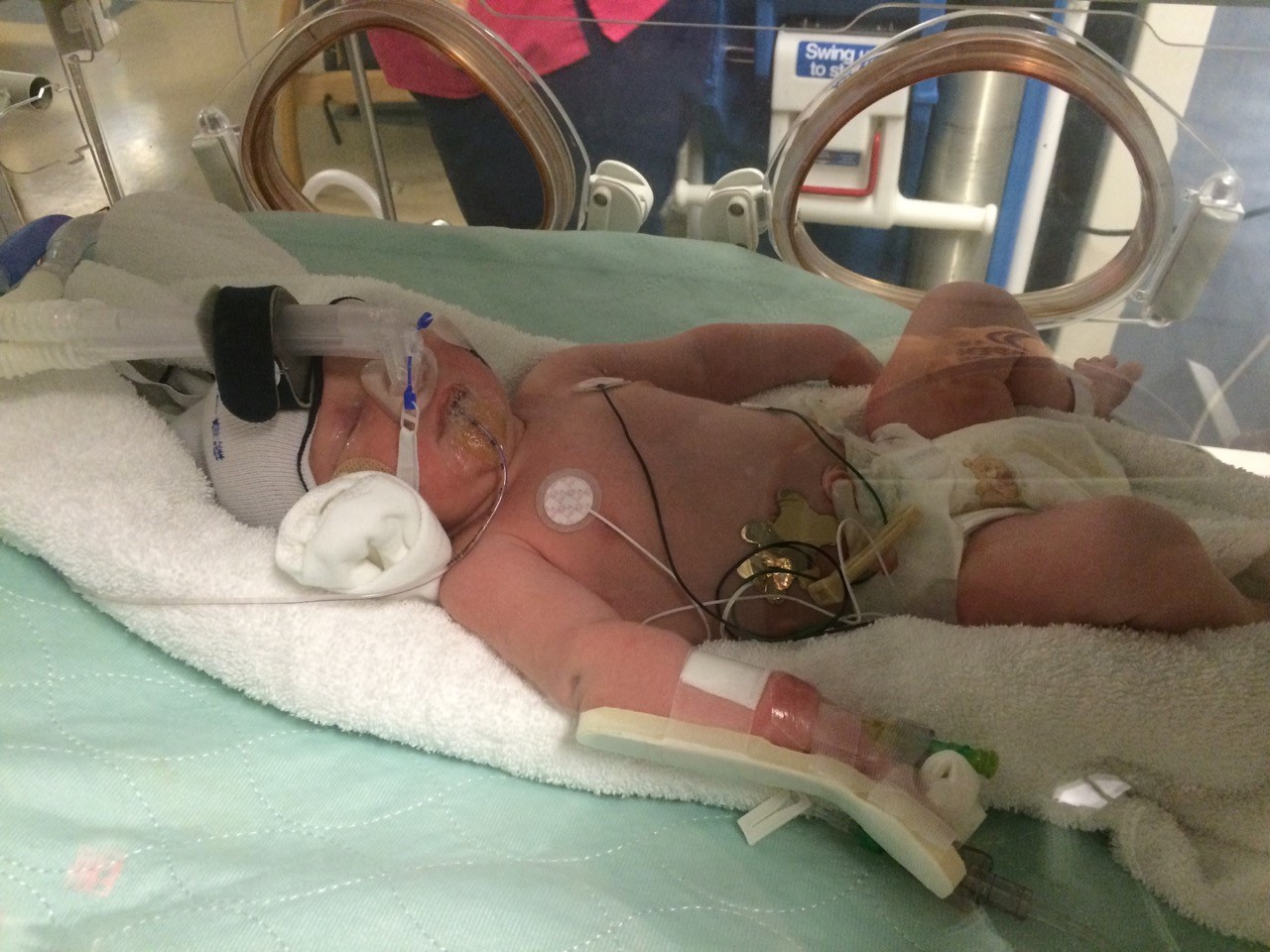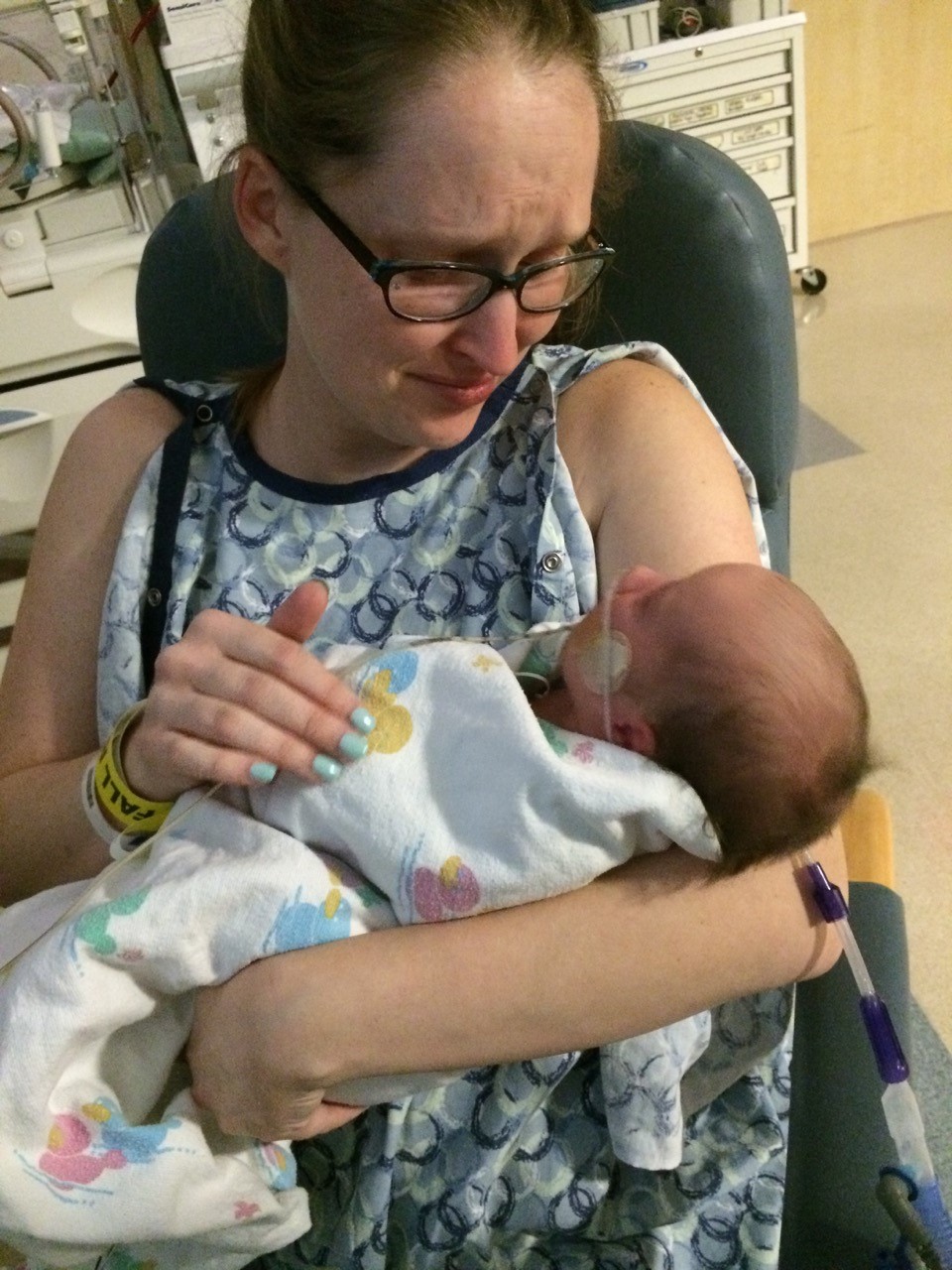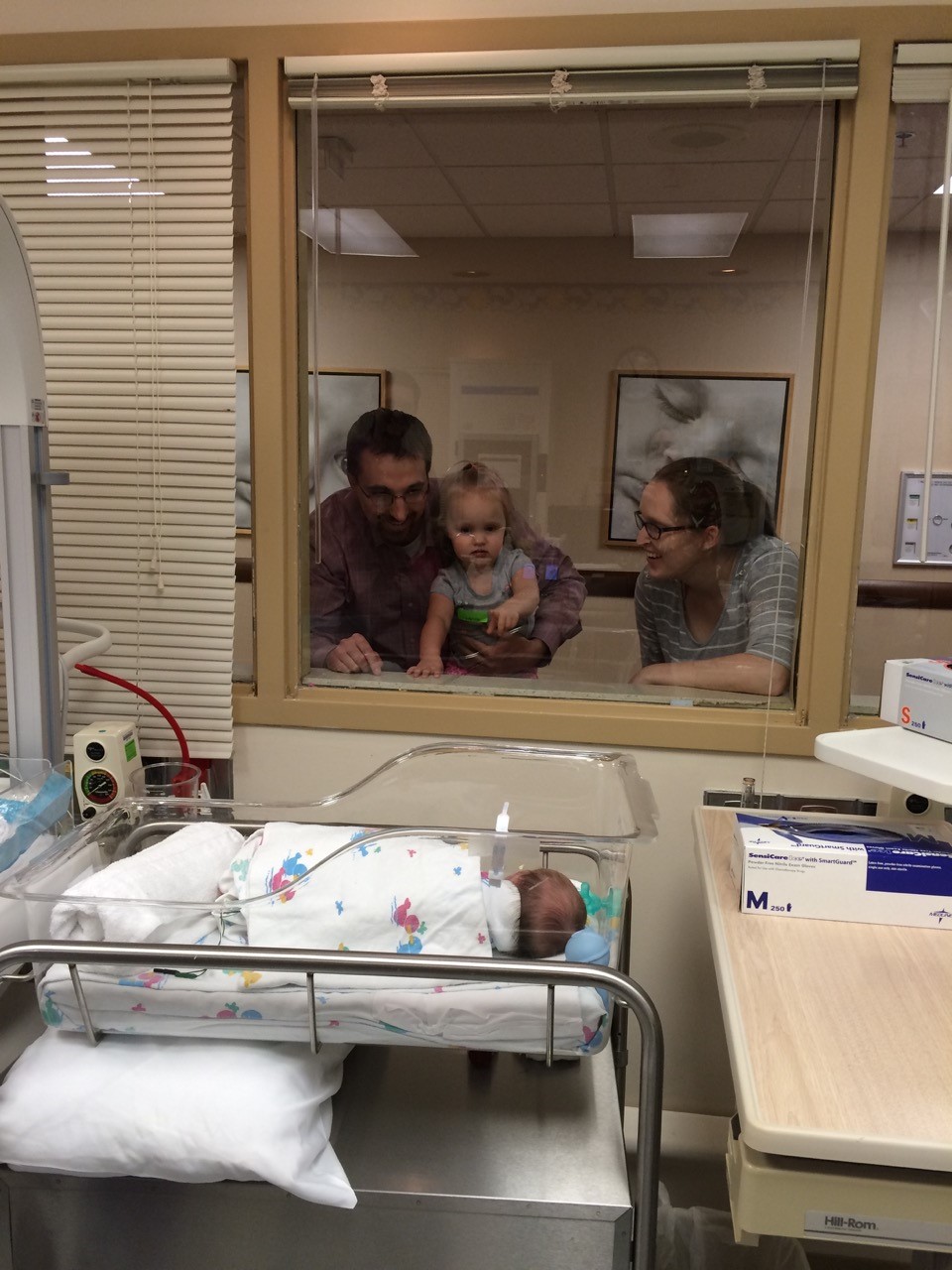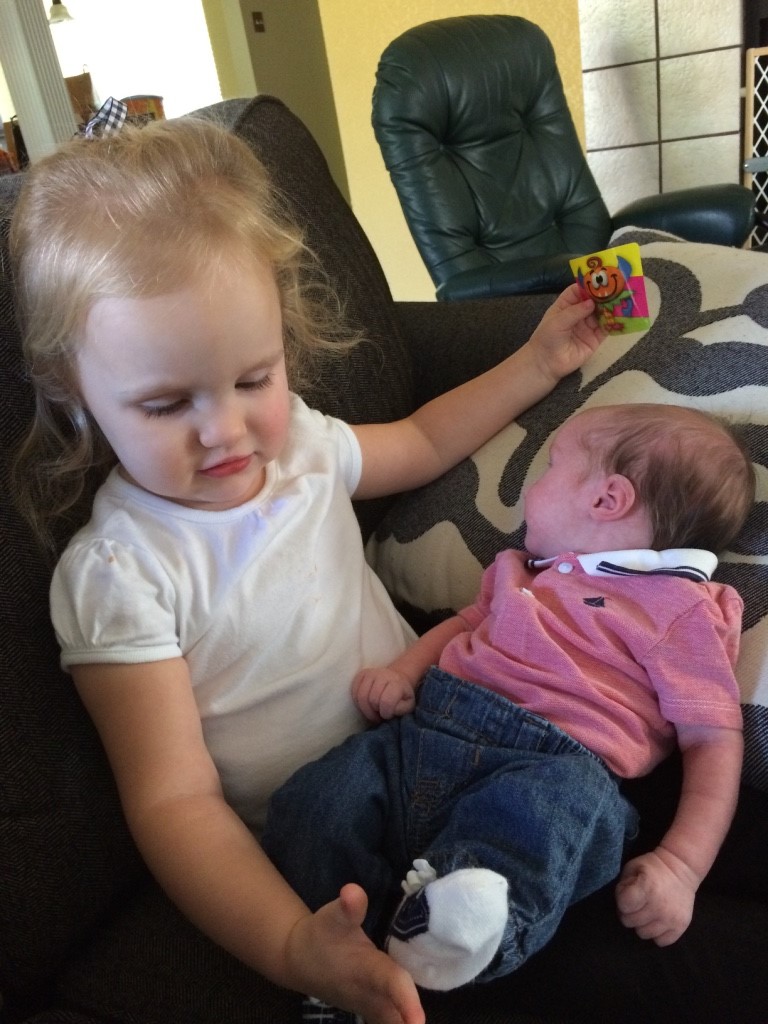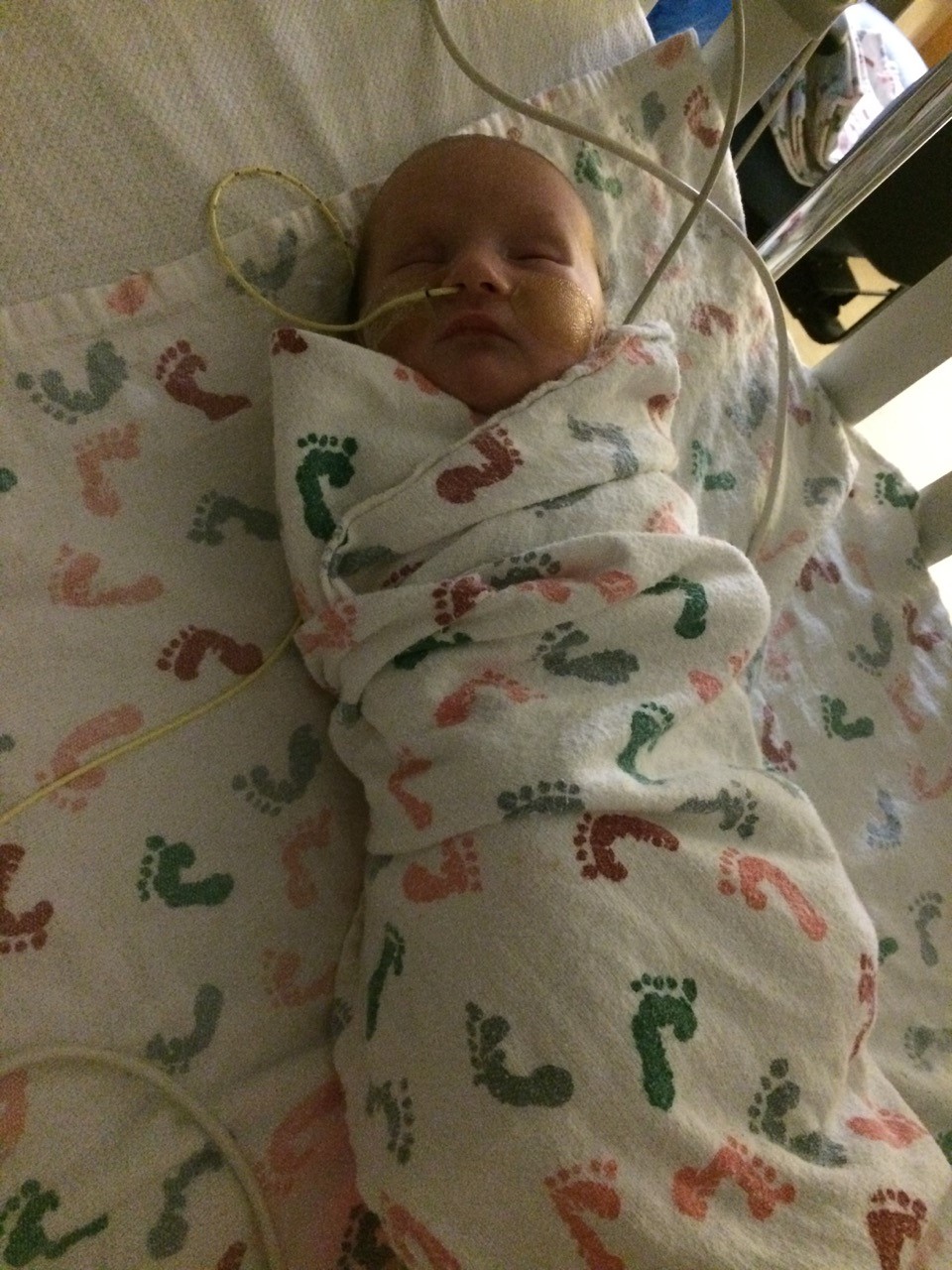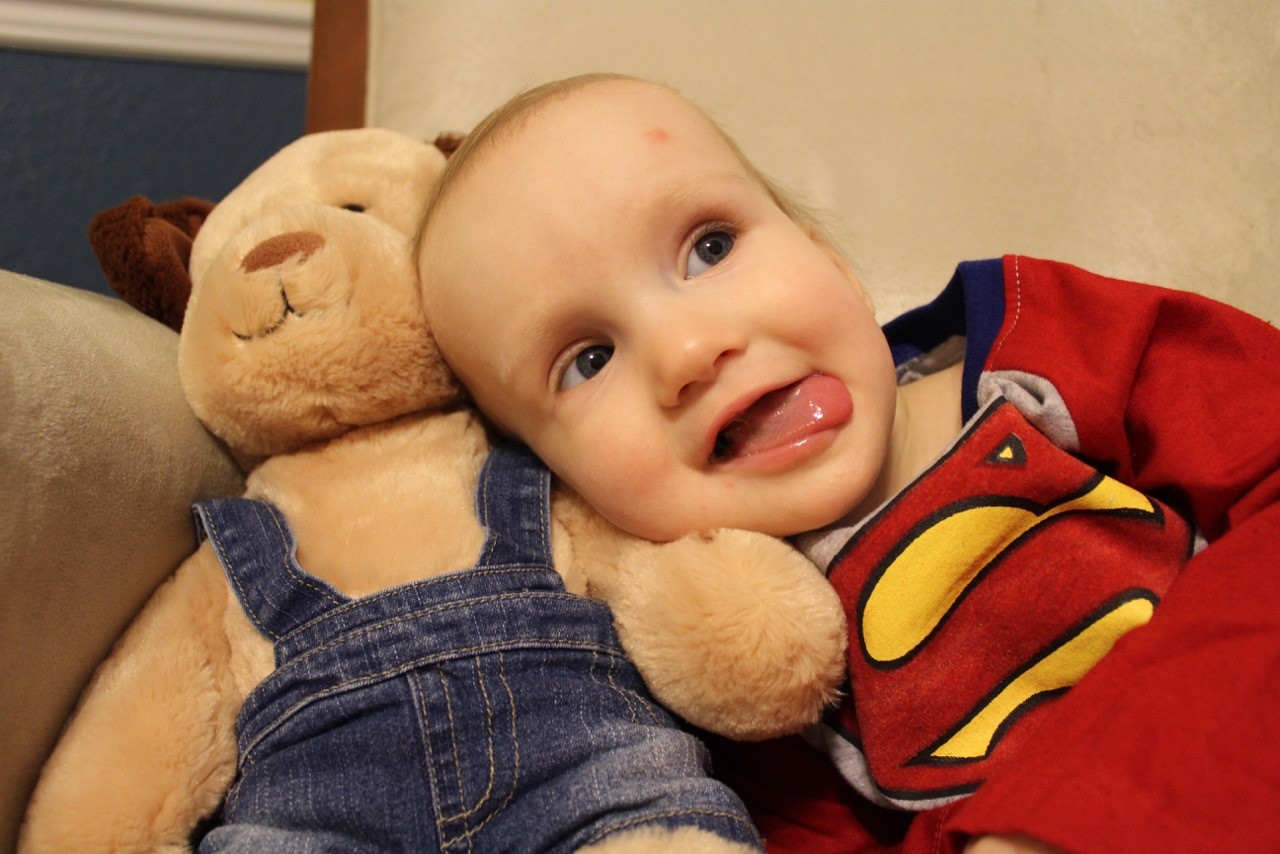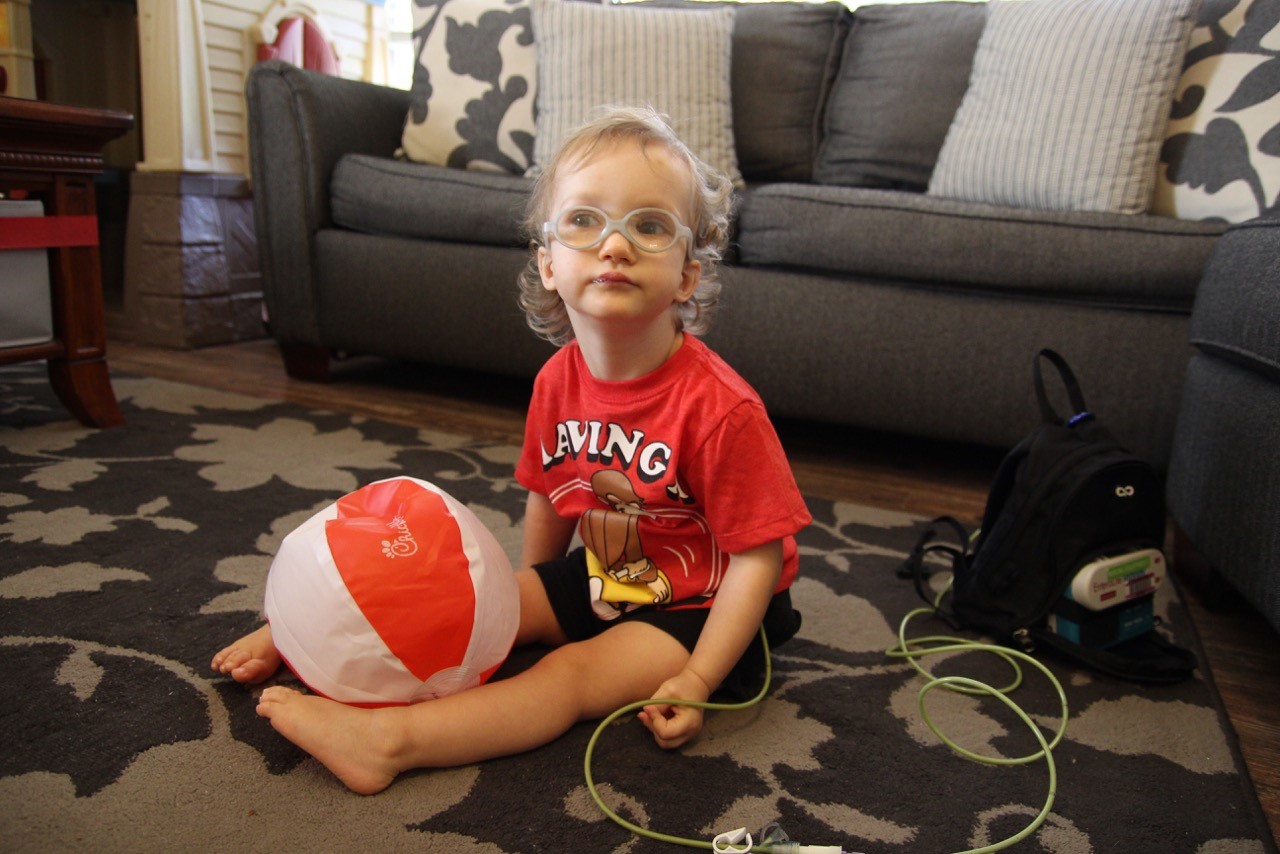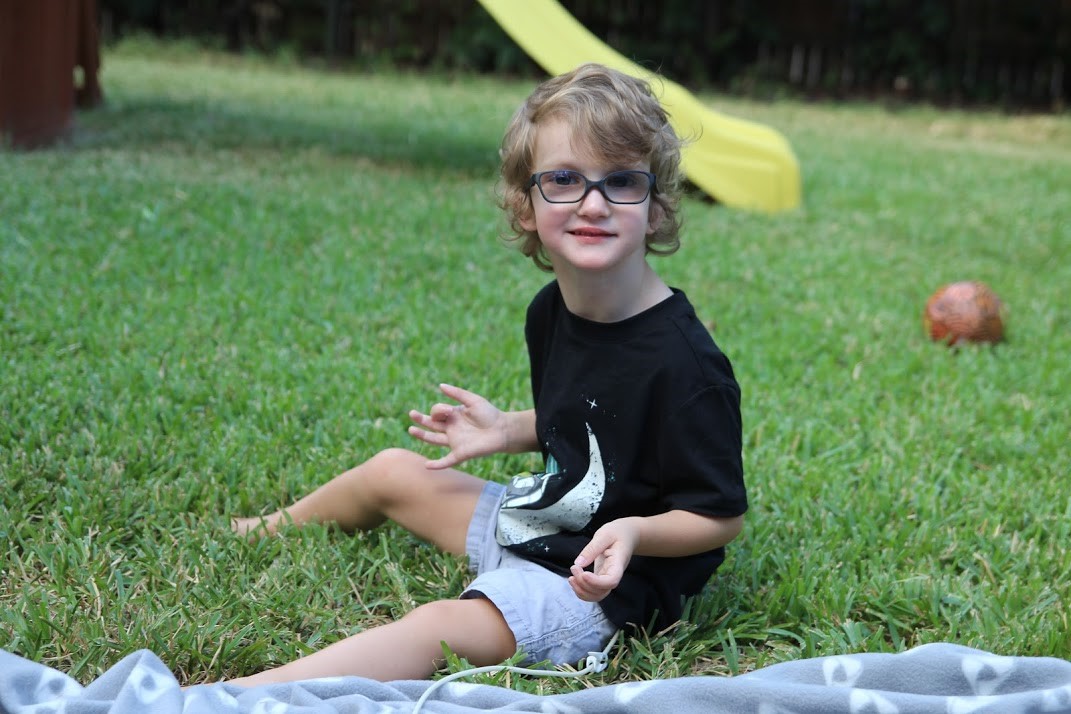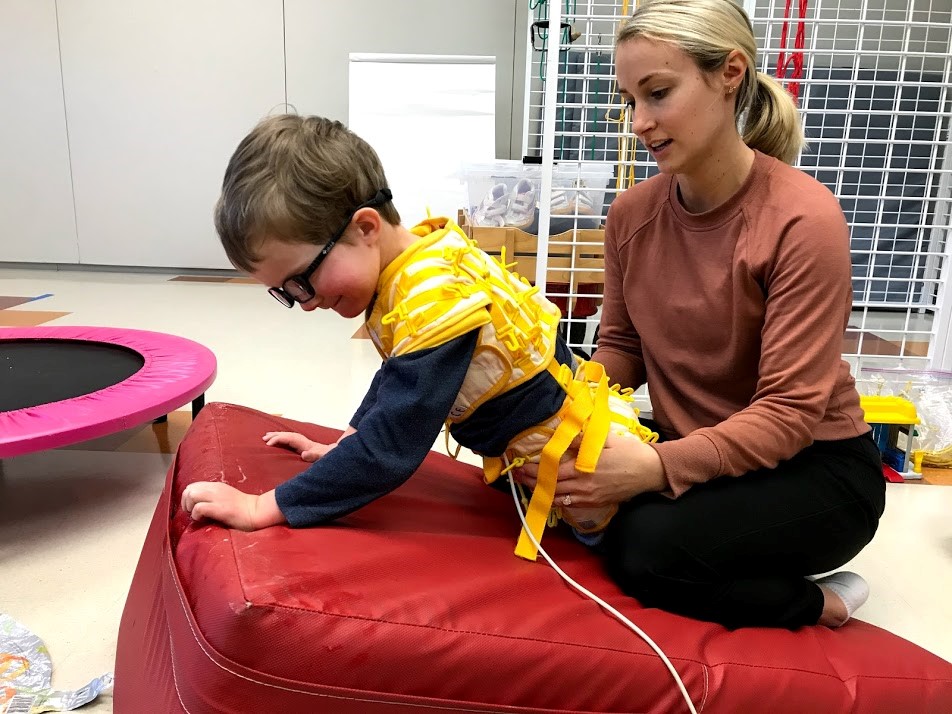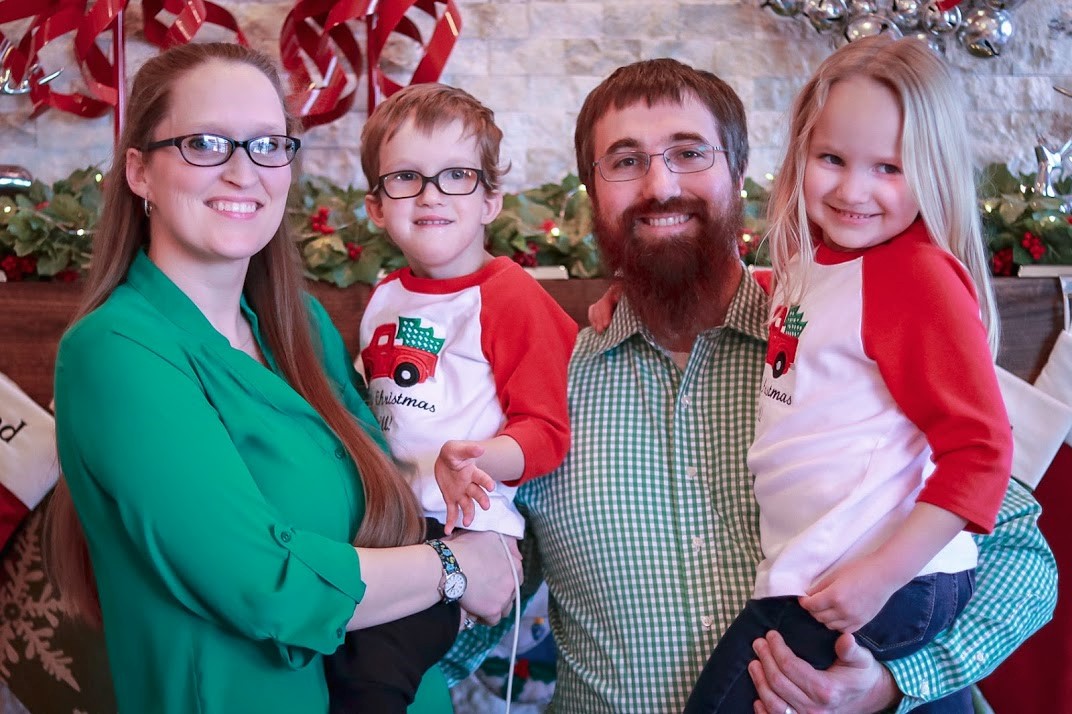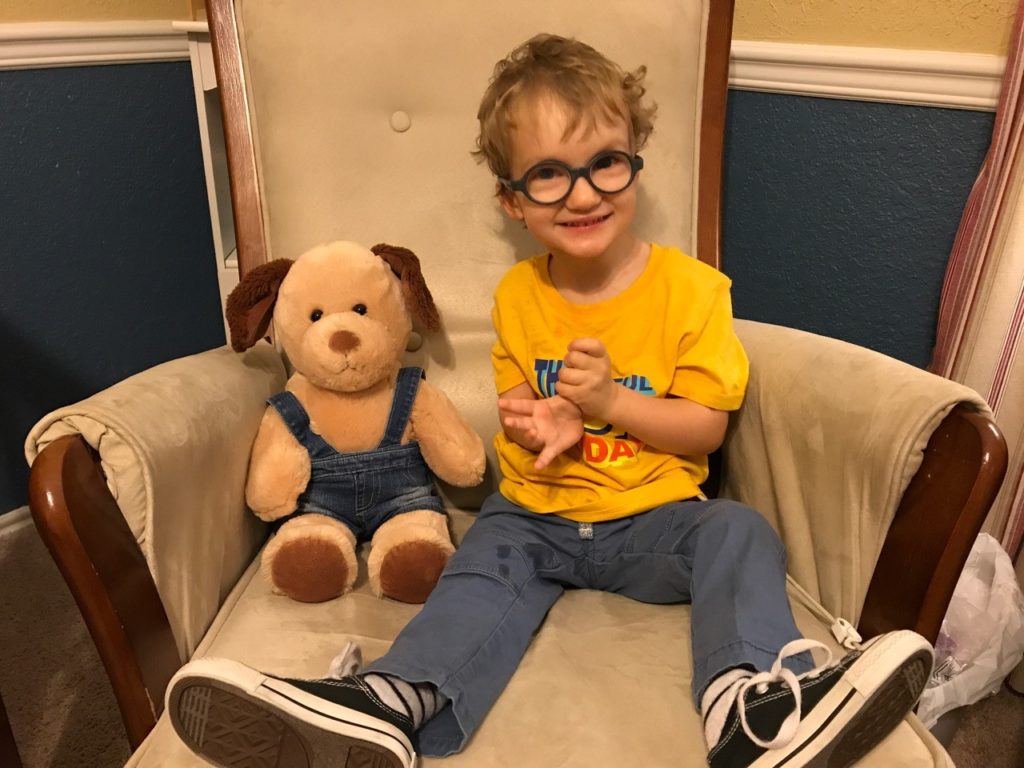 There is no one that makes Conner laugh and smile more than his sister Kylie does. You will hear the sounds of his giggles even on the most challenging days; and there have been many challenging days for Conner.
There is no one that makes Conner laugh and smile more than his sister Kylie does. You will hear the sounds of his giggles even on the most challenging days; and there have been many challenging days for Conner.
He was born with the umbilical cord wrapped around his neck, not making any sounds. The nurses worked to get him breathing and then rushed him to the newborn intensive care unit (NICU). It was more than 30 hours later when Conner’s mom Angela was able to hold him for the first time.
He spent those first 16 days of his life in the NICU where he struggled with feeding and growing, and as a result, he received his first feeding tube. Despite being born full-term, the hospital staff said that Conner was, “acting like a preemie baby”. Even after he was discharged from the NICU, the hospital stays did not end there.
Conner was admitted to the Children’s Medical Center only a few days after he came home from the NICU due to weight loss and not waking up for feedings. After more than a week of doing tests and evaluations that came back clear, he was released from the hospital with the idea that he needed to keep food in, get stronger and outgrow the challenges he faced with feeding.
However, Conner continued to struggle with feeding and went through several feeding tubes over the next year with short breaks in between to see if he could eat enough on his own. Angela felt that Conner was not meeting his developmental milestones and consulted with specialists including a developmental pediatrician and a geneticist to try to find answers. The specialists did additional tests and evaluations on Conner that either came back clear or provided little help in finding a diagnosis.
When he was one, Conner became ill and spent two weeks at Children’s Medical Center. The medical staff was shocked to see that he was not progressing and ordered more tests that came back normal or abnormal but inconclusive. With still no answers, Angela researched top children’s hospitals and contacted Boston Children’s Hospital after she found, on their website, that they had a support group for children and their families who were facing complicated issues. Conner then spent a week at Boston Children’s Hospital, seeing seven different specialists and enduring further testing and procedures. While the specialists there did rule out some possible diagnoses, they were not able to find answers for Conner and his family.
It has been a long journey with several challenges along the way for Conner. Today he is four years old and cannot talk or walk yet, and is on continuous feeds with a feeding tube. However, Conner has a team of therapists at The Warren Center that are working with him to help him reach his full potential.
Conner initially received in-home therapy services through the Early Childhood Intervention (ECI) program. In the beginning, he had no motor skills. He was not able to sit, hold his head up or grasp items.
With the help of therapists at The Warren Center and the education and coaching that Conner’s family received, when he was two he was able to sit. He was fitted for glasses that allowed him to see more of his surroundings and touch items after his therapists recommended a vision evaluation.
Both Conner and his family developed a close relationship with his therapists. He transitioned to Clinic Therapy Services after he graduated from the ECI program at three years old.
“Early Childhood Intervention was amazing just because the therapists were there. They were with us. So then that made the transition to Clinic Therapy Services so much easier and is one of the big components of why we came here rather than going somewhere else,” Angela said.
Conner is continuing to work on his fine and gross motor skills, as well as feeding and speech in Clinic Therapy Services. He is trying communication devices and new textures and flavors of foods. He is also standing longer now with less support and learning how to manipulate objects with his fingers.
“Something that he did last year was taking the cap off a marker and putting it back on. He loves to do that. He learned that last year with his occupational therapist Jenna,” Angela said.
In addition to therapy services, Conner’s therapists are providing his parents with resources and tips to help with his development. They regularly work with his parents to make sure that he has the equipment needed to help with his mobility, including orthotics, which provide more stability during standing and walking activities, as well as a medical stroller, which provides positioning and support.
Other resources and tips that Conner’s therapists have provided his family with include suggestions for toys that help with his development and a routine chart they created to help him establish a bedtime routine.
Although Conner is making great progress with the therapy services and support that he receives at The Warren Center, doctors still do not have a diagnosis for him. For more than a year now, Conner has been a part of the Undiagnosed Diseases Network (UDN) – “a research study to improve the level of diagnosis of rare and undiagnosed conditions,” according to National Institutes of Health. The UDN is currently reanalyzing his exome sequence data in order to try to find a diagnosis for Conner.
When asked to describe the impact of the services that Conner receives at The Warren Center, Angela explained, “It’s more than just services for Conner. It’s been education for me. Because the therapists are always thinking of the next steps and they communicate with me where my mind should be going. Like this is our goal yes. This is how we get there.”
While The Warren Center has helped equip Angela with the education needed to be an advocate for her son, there are also somethings that cannot be taught; Conner’s fighting spirit, his mother’s love, his father’s persistence and that special bond he has with his sister Kylie.

